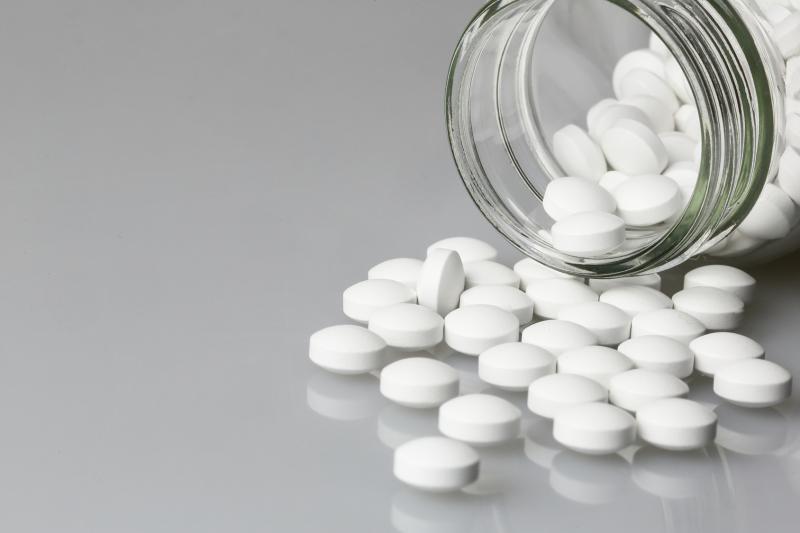
Use of aspirin in older adults with cancer may do more harm than good, exerting an adverse effect on later stages of cancer evolution, as reported in a study.
Researchers conducted a more detailed analysis of the effect of aspirin on cancer incidence and mortality in ASPREE* participants. The analysis included 19,114 Australian and US community-dwelling participants aged ≥70 years without cardiovascular disease, dementia, or physical disability.
At baseline, 3,660 patients (19.1 percent) had a prior diagnosis of cancer. The compliance to study medication was 72.7 percent in the aspirin group and 74.5 percent in the placebo group. Over a median follow-up of 4.7 years, 981 individuals in the aspirin group and 952 in the placebo group developed cancer following randomization, regardless of whether they had a past cancer history at baseline.
Of the patients who developed new-onset cancer, 1,270 (65.7 percent) presented with localized tumour, 363 (18.8 percent) with new metastatic disease, 113 (5.8 percent) with metastatic disease of a cancer type already present before study entry, and 187 (9.7 percent) with a haematological or lymphatic cancer. A total of 495 patients (25.6 percent) died due to their malignancy, among whom 52 died from progression of a cancer initially diagnosed prior to trial entry.
In Cox proportional hazards models, aspirin had a null effect on the risk of first incident of cancer (hazard ratio [HR], 1.04, 95 percent confidence interval [CI], 0.95–1.14), haematological cancer (HR, 0.98, 95 percent CI, 0.73–1.30), or the overall incidence of solid cancers (HR, 1.05, 95 percent CI, 0.95–1.15).
However, aspirin use contributed to an increased risk of incident cancer that had metastasized (HR, 1.19, 95 percent CI, 1.00–1.43) or was stage 4 at diagnosis (HR, 1.22, 95 percent CI, 1.02–1.45) and to a higher risk of death for cancers that presented at stages 3 (HR, 2.11, 95 percent CI, 1.03–4.33) or 4 (HR, 1.31, 95 percent CI, 1.04–1.64).
Based on the present data, the researchers urged caution when considering aspirin in elderly cancer patients.
*ASPirin in Reducing Events in the Elderly